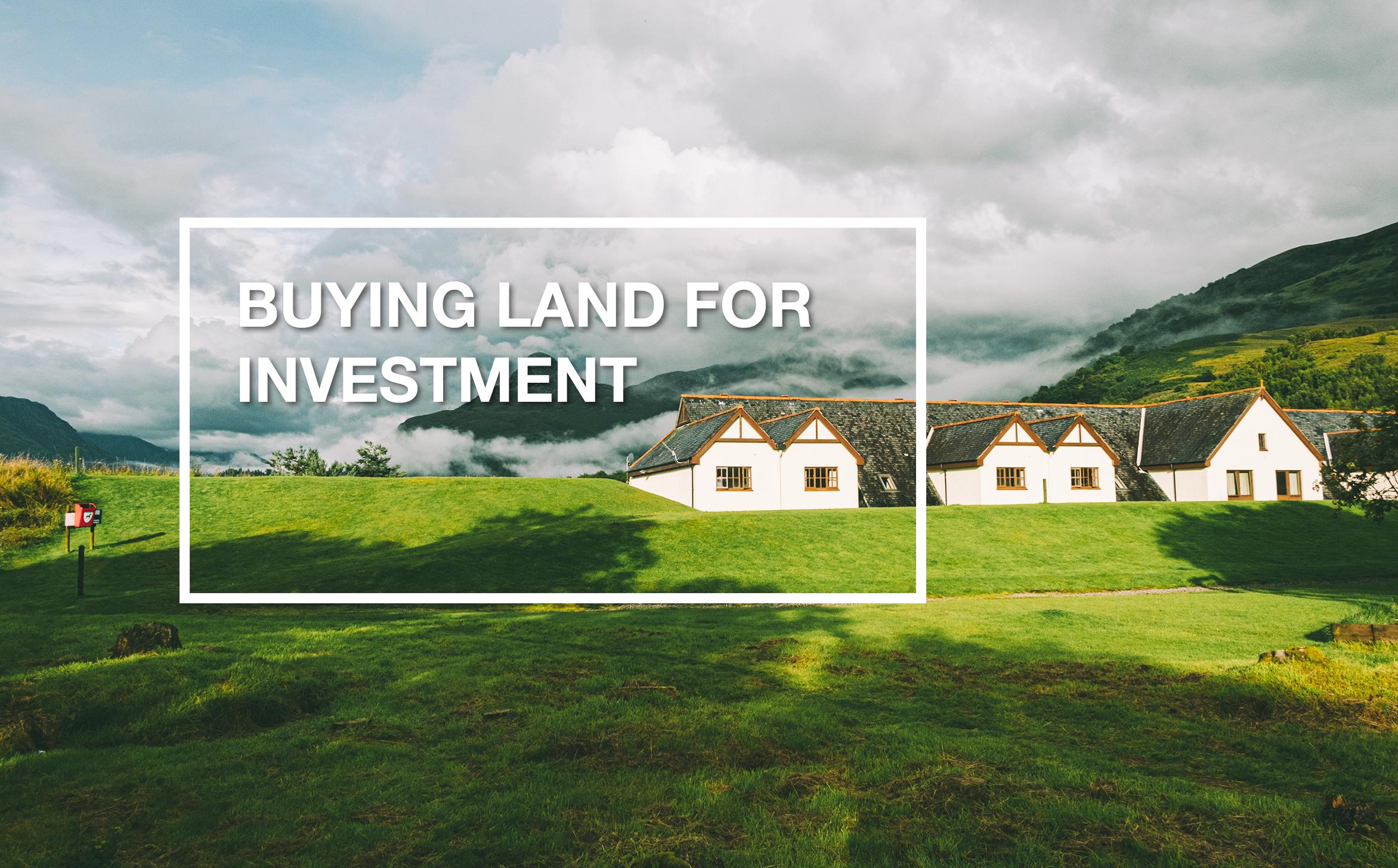
Buying Land For Investment
If you’re looking for land for sale in Toronto or the GTA, you’ve likely realized that the process can be a bit daunting, however, buying land for investment is a wise move for many investors. Even novices, with the right guidance, can make substantial profits from buying land. Land is key to growing any community and as Toronto is one of the fastest growing cities in North America, there are tons of opportunities.
Buying Land For Investment: Residential Or Commercial?
Purchasing, and retaining land and property for appreciation, or holding it with the intent to build, can be profitable in both the residential or commercial markets. Income from such property and land development may evolve into rental income, or you might sell it for a substantial profit to the right builder. Some investors buy land and build golf courses, resorts, or camping facilities. Others build home developments or even fishponds. There is no shortage of ideas when it comes to land development! Investments are excellent for the economy as they open up job opportunities, new places for people to live or even raise property values in the areas in which they appear.
Finding Land For Sale:
A good place to begin when looking for land to purchase is your local transportation and planning department, which will provide insight into future area developments. Because these decisions are made years in advance, you can do your research and find opportunities or obtain properties at stellar prices. Smart investors will also use surveys and hire the right professionals, such as land brokers, to investigate areas of interest in depth, before they invest.
Guidelines For Investing in Land and Land Development
Choose a good location:
Decide if you want a property within proximity to your present residence or do you prefer to let someone local manage the property for you? How will the property be used? Determining the activities that will be available at the property will be key in deciding where to locate it i.e. if you want a property people can use primarily in the summer, you would want to consider the property’s location in relation to the beach, hiking trails or fishing grounds.
Make A Strong Action Plan For The Land Under Consideration:
As with any other business, planning in advance is crucial. Besides financial statements, you will want to take into consideration material and labour costs, road access, interference from weather, and utility connections. The more in-depth you do your research and create realistic action plans, the better chances you won’t be caught off guard with unexpected, costly surprises.
Decide The Purpose Of The Land:
Will the property be a rental or a for-sale project? If for sale, are you familiar with how to sell land in that specific geographic area? Selling land in Toronto is very different than selling land in remote areas of the province. Be sure to check zoning requirements, building codes and other things that may affect your ability to develop the land. A land specialist can do these tasks for you!
Research:
We can’t emphasize enough the importance of research when buying land for investment purposes. Consider titles, the land’s prior use, area amenities, and other structures around the property. For example, if the potential land is located close to a landfill, industrial building, or some other facility, it may not be best to consider this property for a residential site.
Funding for Land Investment Projects
Starting a project of any kind without the funds to complete it is a huge mistake. If building a structure, the elements can destroy the material before the funds for completion are in place. This will make things extra difficult, waste money and possibly derail your entire project.
Your Return on Investment (ROI)
If you can, it is wise to get a land expert’s opinion (i.e. a land broker) in advance of how much money you could possibly make after investing in land, and how difficult it may be to sell the land at a future date, especially after you’ve developed it.
Knowing When to Develop Property:
Developing land is all about the timing and understanding changes in the region you are looking at. In the Toronto area, we’ve noticed huge changes to various regional zones, and work diligently to be on top of this fast-changing market. The flow of money changes a place, the influx of people, and the activities and projects of industrial developers. These will all be important factors to consider to help you determine when you can and should develop your investment property.
Advantages of Buying Residential Property:
Once land is purchased for residential purposes, a developer has options. He or she decides the direction the homes will face, how small or large they will be, how much property they will have, and so on. Here are some advantages for investors who invested in land for residential purposes:
1. Vacant property has multiple uses depending upon zoning. Many areas provide no rules, so the land can work for any purpose the owner formulates.
2. Undeveloped properties sell for far less than developed lands and lets potential investors shape the future of the parcel. It provides an incredible investment opportunity if you have the right vision and team to make it happen.
3. The value of land increases over time
4. Owning land has less carrying fees
5. Land has a high potential for value growth
Final Tips:
Before you buy land for investment purposes, make sure the market value of the land is clear. When buying land, market value is essential to the amount of taxes you’ll pay, closing costs, and any profits you can earn. You never want to pay more than the property is worth.
If you’re looking to purchase land, ensure you work with someone specialized in land transactions, such as a land specialist. Inexperience when buying or selling land can cost you thousands.

